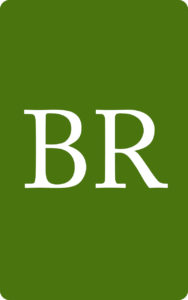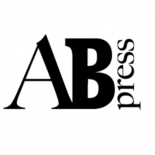From suburbia and skyscraper scrawl to the open prairies and 'local color', slum life to rural idyll: reprinting American and British literary classics.
British Retro
 Reprints of British classic fiction, gatefold C format paperbacks, cover colour & design coordinated, at £6 each
Reprints of British classic fiction, gatefold C format paperbacks, cover colour & design coordinated, at £6 each
The publishing that developed in the early 1900s was both vibrant and strongly utilitarian. The aestheticism of Paget and Wilde and the artisan virtue signalling of Ruskin and William Morris succumbed to a combination of the profit and lost of an abacus and an aesthetic judgement that rejoiced in feeding the five thousand rather than just the disciples.
The following titles are to be published in January 2020 :-
| BR01 | Stella Benson | Living Alone |
| BR02 | E. M. Delafield | The War-workers |
| BR03 | Elizabeth von Arnim | The Enchanted April |
| BR04 | E. F. Benson | Mapp and Lucia |
| BR05 | Katherine Mansfield | The Garden Party |
| BR06 | E. W. Hornung | The Amateur Cracksman |
| BR07 | G. K. Chesterton | The Innocence of Father Brown |
| BR08 | James Joyce | The Dubliners |
| BR09 | Mary Webb | Gone to Earth |
| BR10 | Romer Wilson | The Death of Society |
| BR11 | May Sinclair | The Combined Maze |
| BR12 | Charles Williams | Descent into Hell |
With that unique sense of the amateur and gentleman, British writing at the beginning of the twentieth century reflected very much its society; in a representative way the terms ‘highbrow’, ‘middlebrow’ and ‘lowbrow’ may even have mirrored its class system. By 1900, a middle class had formed who were able to use leisure as a virtuous tool. Thorstein Veblen’s book The Theory of the Leisured Class, published in 1899, introduced the concept of ‘conspicuous consumption’, which he applied to the nouveau riche of the late nineteenth century. Veblen was harshly critical of William Morris, whose Kelmscott Press grandstanded obsoletism and scarcity. Morris, wrote Veblen, had used arcane spelling and “limp vellum fitted with thongs,” and limited edition printings to shake the purse strings of the wealthy and artistically recreational; Morris’s books lent “pecuniary distinction to its consumer.” The rampant aestheticism of Paget and Wilde and the artisan virtue signalling of Ruskin and Morris were threatened by a more commercial wave of cultural industry and a less hedonistic sense of aestheticism, incubated in the bursary; it monetized refinement. The combined the profit and loss of the abacus and aesthetic judgement, it rejoiced in feeding the five thousand rather than just the disciples. Trickle down can be applied to the distribution of culture as well as wealth. If it borrowed William Morris’ aesthetic, it stood against his rather elitist view of the book as an artefact. The publishing that emerged was strongly utilitarian and is the high tide moment of Britain’s book trade.
Publishing in Britain before and particularly after the First World War had many marketing segments to meet. The selling of books has always been a world divided, perhaps like a dog lost between several owners parting ways, the dog bewildered by which master to follow. Alongside a more overt commercial side, writers, publishers and booksellers have been racked also with a spurious conscience: a pious book trade emerges at this time which wishes to support and promote reading generally, or at least keen to be seen as such. Booksellers, for instance, used cod liver oil as part of its pharmacy. It had been administered already centuries before, when copyright law was codified in 1709. The statute that related specifically to booksellers charged them with pricing books fairly; any customer who thought the price of any book to be too high was liable to report it to the Archbishop of Canterbury, five pound per book sold the fine exacted. Such unquantifiable notions of fairness have clung like a hangover to the book trade ever since. This has meant that the new book trade’s response to market values has been as problematic as it has been diverse. On one side of their dilemma was the penny dreadful and the commercialization of literature; on the other was a celebration of the book as an artefact, an object with add-on virtue. The book as a vehicle of intelligent pleasure falls somewhere in-between these two stools.


